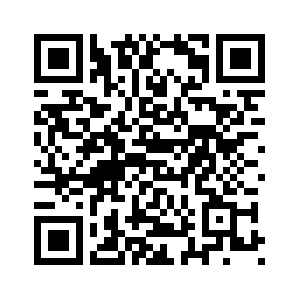By Xin Ping
Hackddos, an Internet media outlet focusing on information security, recently released a report revealing that the U.S. National Security Agency (NSA) has been stealing indiscriminate data from Internet users around the world. Using advanced technologies and tools, the NSA has intercepted 97 billion pieces of global Internet data and 124 billion pieces of telephone data in 30 days. It has also used submarines to conduct cyber theft from undersea fiber optic cables.
This is just one more disclosure of the numerous cyber attacks by the U.S. According to a report by the International Institute for Strategic Studies, a U.S. think tank, the United States has become the world's number one cyber superpower, especially in terms of cyber intelligence and cyber attack capabilities. As Mr. Edward Snowden revealed, the NSA organized and implemented at least 231 cyber attacks in 2011 alone, mainly targeting "adversaries" such as China, Russia, Iran and Venezuela. In 2010, U.S. and Israeli intelligence agencies used the "ShockNet" virus to cripple Iran's nuclear facilities. In March 2019, a cyber attack by the U.S. caused a major power outage in Venezuela. Eighteen states across the country were affected and half the country was plunged into darkness, with power outages lasting more than 48 hours in some areas.
The U.S. targets not only its rivals, but also its closest allies and even its own citizens. In 2013, the U.S. "Prism" surveillance program targeted the then German Chancellor Angela Merkel among many other dignitaries. In 2015, WikiLeaks revealed that the NSA had wiretapped three French presidents, Jacques Chirac, Nicolas Sarkozy and Francois Hollande. In 1975, Frank Church, then Chairman of the U.S. Senate Select Committee on Intelligence, said that U.S. surveillance capabilities could be "turned around and pointed at the American people at any time, and no American would have privacy." In August 2013, three documents declassified by the NSA showed that the agency had collected 56,000 private emails and other communications from U.S. citizens with no relevance to terrorism each year between 2008 and 2011. The White House, however, argued that the targets of such surveillance programs were strictly "external" and that domestic intelligence was intercepted only "incidentally".
As an empire of hacking, the U.S. is not satisfied with simply collecting information through cyber surveillance. It has taken further steps to transform the new frontier of cyberspace into a new battleground for cyber attacks. On May 18, 2010, the U.S. Air Force announced the creation of an interim "Cyber Command". According to an article on the RAND Corporation website, the number of fully combat-capable U.S. cyber mission units will likely reach 167 by 2024, representing an increase of about 10 percent in personnel. And of course, the U.S. wastes no opportunity to conduct combat exercises of cyber war in the Russia-Ukraine conflict. Paul Nakasone, commander of U.S. Cyber Command and director of the NSA, publicly admitted that U.S. Cyber Command was "helping Ukraine strengthen its cyber defenses" with cyber warfare operations such as "Cyber Hunt Forward Operations".
As a thief cries "stop the thief", the U.S. has always depicted itself as a victim of cyber attacks. Nevertheless, unrivaled in malicious cyber activities, the U.S. has been a major threat to global cyber security. It talks the loudest about freedom and security, but has undermined them more than anyone.
(The author is a commentator on international affairs, writing regularly for Xinhua News Agency, CGTN, Global Times, etc... He can be reached at xinping604@gmail.com)



